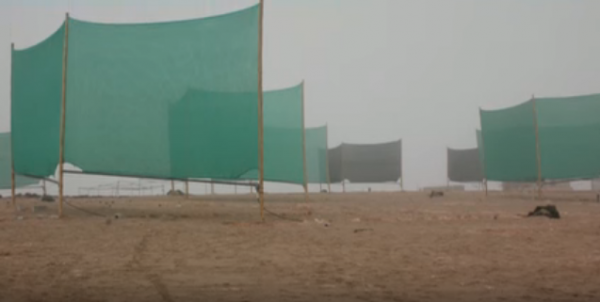
Some parts of the world are abundant in safe and clean water for drinking but others are not fortunate enough and need to think of ways on how to procure water to sustain everyday life.
In Peña Blanca, large nets are spread vertically in areas where thick fogs pass. The place is a little agricultural neighborhood situated at 300 km north of Santiago. These standing nets became known to the residents as "fog catchers" which is used to catch thick fogs as well as high winds to collect the precious water.
This method was initially developed in Chile during the 1950's where fogs pushed its way through the fine net where it condenses, drips and become collected. It would be an inexpensive, efficient, and clean method to get water. The fine mesh collects valuable water for agriculture and animals. The collected 840 liters of water a day will be divided among 85 landowners, CNN reported.
"Water shortage is a worldwide problem and we are not oblivious to it," says Daniel Rojas, community leader. "It rains less and less, there is a lack of vegetation, fewer crops and people are affected in every sense. But here we have a natural resource that wasn't being exploited."
Thick coastal fog or "camanchaca" as locally known, drifts in most days blocking out the sun, however, locals would appreciate the wind and low perceptibility.
Meanwhile, Coastal Peru will also be adopting the same idea to get cheap and clean water and called their initiative "fog catcher". This is going to be installed to further areas of Lima, Peru to provide clean water for the poor.
Nature World News has learned that mounting 1,000 fog catchers in the southern Lima desert region will generate 400,000 liters of water a day that could sustain locals dwelling at higher altitudes according to Water World. This kind initiative has been headed by the community leader of Peruvians Without Water (Peruanos Sin Agua) movement, Abel Cruz.
As of the moment, the water yielded by the fog catchers is not potable. Locals use the water for irrigation and watering annual productions. However, Abel has plans of treating the water to make it potable in the near future.



